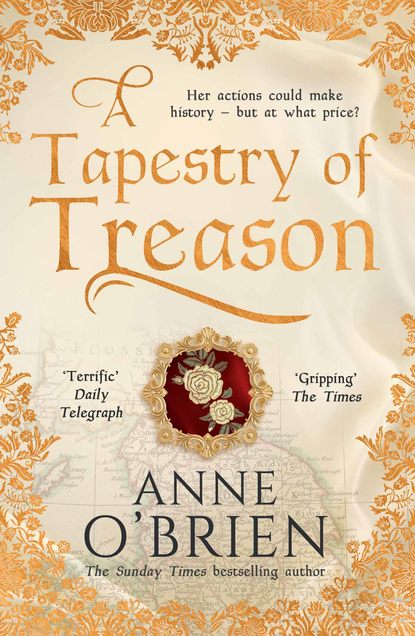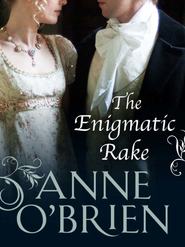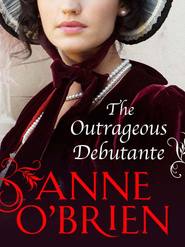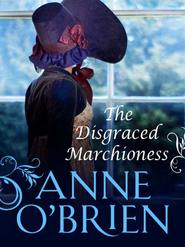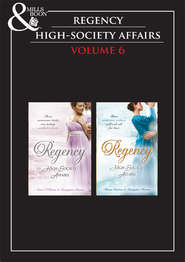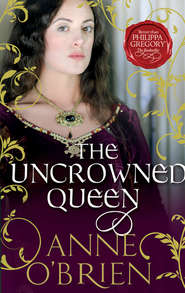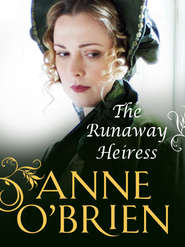По всем вопросам обращайтесь на: info@litportal.ru
(©) 2003-2025.
✖
A Tapestry of Treason
Автор
Год написания книги
2019
Настройки чтения
Размер шрифта
Высота строк
Поля
All told, the day had been an exhibition of absence of familial affection. Fortunately, we were bound fast together by raw ambition.
Chapter Two (#ulink_0b0873ac-72a2-5f8f-a93b-67eba88d7f45)
31st August 1399: Palace of Westminster
‘If you are going to keep me company, I could wish you would not fidget.’
Two months. Two short months during which all the glamour of King Richard’s departure had collapsed into disaster. I could make no pretence that my mood was anything but heavy, unease sharpening my tongue. Indeed it was not an unease; by now it was rampant fear. If Dickon expected tolerance from me he would see the day pass without even a gnat-bite of it. I was held in chains of a grave anxiety.
We were still suffering the sultriness of high summer, but the heat did not penetrate to where we stood, Dickon and I, carved emblems of royal power pressing down upon us from above, enfolding us from left and right, from every angle. Such symbols of royal authority, King Richard’s authority, should have soothed and reassured. I frowned and Dickon continued to twitch and shuffle, a mess of angular limbs.
‘How can I not fidget? How long have we been waiting? You don’t even know that he will be brought here.’
‘I do know. He will come.’
‘There are twenty-six of them,’ Dickon informed me inconsequentially, squinting at the angelic band of heavenly angels, carved at the end of each hammer-beam above our heads. He had been passing the time in mindless counting, but I was not prepared to engage in ineffectual conversation. It seemed to me that my family and I were balanced like angels on the head of a pin. All we had achieved was about to be thrown into chaos.
‘How much longer?’ Dickon groaned. ‘Will he be shackled?’
When his large feet continued to scuff against the Purbeck stone, his shoulders hunched in a perpetual slouch, I pinned him with a stare of displeasure as I dug my fingers into the fine weave of his sleeve. I cared not that it was detrimental to the raised pattern.
‘Whether he is shackled or not, you will award him all courtesy. He is your godfather as well as your King.’
‘And the only source of any wealth that will come to me. I will be all courtesy, as douce as a girl, because if I’m not I’ll be cut off without a silver groat.’ Dickon’s glance was sharper and more calculating than it had a right to be. ‘Except that he may no longer have any groats to lavish on me. Will he be a prisoner?’ Dragging his sleeve from my grasp, he moved so that he could see through the carved arch of the doorway where they would eventually make an entrance.
‘I do not yet know.’
But I could not see this charade, this exchange of power from King to Invader, ending in any other fashion.
A servant entered, one I had sent on a mission, now hot from riding. He approached at a jog.
‘Well?’ I asked.
‘They are here, my lady, two miles outside the city.’ He bowed then wiped his face on his sleeve. ‘They’ll be closer now. The King is here with them.’
‘Who is in command?’
The servant shrugged. He was not one of mine or he would not have dared to shrug in my presence. ‘The Mayor and aldermen have met with them, my lady. It was their decision that the King should be brought here to Westminster. The King had no choice in the matter, I’d say.’
‘And the Duke of Lancaster?’
‘He rides at the head of his army, my lady.’
‘Is he in control? Does he have an air of authority?’ I was curious. What was the demeanour of my cousin Henry of Lancaster? Had he returned as supplicant or conqueror?
Richard had banished Henry from England, ostensibly for treason. Now Henry was returned on the death of his father, to reclaim both his title and his inheritance, choosing the opportune moment when Richard was in Ireland. I had to admire his perspicacity. Many would say that Richard had been far from wise in condemning Henry to banishment for life at the same time as he confiscated all the Lancaster wealth and lands for his own use. Our cousin Henry was unlikely to accept such wilful destruction of his true inheritance with a head bent in obedient acceptance. Cousin Henry would demand what was his by right. He had landed at Ravenspur to the north in the first week of July, collecting an army which included the puissant Percy Earl of Northumberland, and now he was here in London with King Richard firmly tucked into his gauntleted fist.
The messenger broke into my thoughts. ‘The Duke of Lancaster’s armour is very fine, my lady. Italian and worth a King’s ransom, so they say. He looks like a man who knows what he wants and intends to get it.’ His face split in a wily gap-toothed grin. ‘There’ll be much changing of allegiances, I reckon, now that the King is under Lancaster’s heel.’
Heel or fist, the result could be the same. Disliking his humour, I dismissed him without further coin than I had already given. King Richard’s crown was under threat, but we would wait until all was made clear. Dickon drifted away again.
‘Do you know what I think…?’ he called across the vast echoing space.
I was never to know. The repetitive beat of marching feet intruded, the clatter of horses’ hooves, and not least the rancorous shouts of the crowd. My sole concentration was focused on the great doors, now dragged back, stirring the air. In marched an armed guard; at the centre of their protection, or perhaps their containment, walked Richard. King Richard, heir of King Edward the Third, our cousin and God’s anointed King of England, all hedged about by bland-faced soldiery. In the face of such military might, Dickon and I retreated once again to the feet of a carved and unimpressed statue.
The guard came to a halt and so did the King.
I could not take my eyes from his face. Never had I seen him so unkingly, whether in demeanour or in apparel. Pale, dishevelled, his soft lips pressed hard together, Richard stared round him as if he had still to accept where he was and why he was here, hemmed in by soldiers not in his own livery. Then he was plucking at his tunic, a garment that he might have been wearing for the whole of the journey from Wales, so travel-worn and stained as it was. His boots were covered in dust, as were his hose to the knee. Eyes wild and uncomprehending, he was hollow-cheeked, implying that he had not eaten a good meal since he had fallen into Lancaster’s hands. This man was so much changed from the crimson-clad ruler who had left London a mere few weeks ago that all I could register in that moment was shock. His youthful beauty and vibrancy had been beaten out of him. Even his hair visible beneath the plain felt cap had lost its lustre. He wore no jewels. The ruby ring had gone from his hand. There was no sword at his side. Degradation, as rank water in a thunderstorm, dripped from him.
Richard’s vacant gaze fell on me, so that I stepped forward and, through a lifetime of duty and custom, curtsied. The King might have been robbed of all royal grace, but I, clad nobly in deep blue damask with gold stitching at cuff and hem, would uphold it for him. We owed him so much. Was he not my own cousin, my own Plantagenet blood? Unfortunately so was Henry of Lancaster. As I rose to my full height, I foresaw a complex future, troubled by bonds of conflicting family loyalties.
At a glance from me, Dickon bowed.
‘Constance?’ The King’s voice trembled.
‘Yes, my lord.’
‘Have you come to petition me?’ His tone was querulous.
‘No, my lord.’
I was distracted, for into the Hall had marched an escort in livery that was my own by birth, the same lions and French lilies as were carved onto Richard’s shields, and then came the Mayor and aldermen, self-important in their red robes despite having walked the distance from their first meeting with the King. It was the man at the head who was in command, a man who once had the height and bearing to be an imposing figure. Now his hair was grey, his face marked by years, his shoulders no longer braced beneath the armour plating. My father, Edmund of Langley, Duke of York.
‘My lord.’
I curtsied dutifully again. He nodded to me, ignoring Dickon, concentrating on dealing with the immediate problem.
‘Take the King to his chamber,’ he directed his serjeant-at-arms. ‘See to his comfort there, but post a permanent guard at door and window. We need no more attempts at escape as at Lichfield.’
I thought that Richard, standing silent and unresponsive in our midst, would not have the wit to escape. The Mayor nodding his approval, we watched as the King, with a light touch to his arm, was led unresisting, uncomplaining, away in the direction of the royal apartments.
My father approached, forehead thick with lines. ‘What are you doing here?’
Why would I not be here? What I found difficult to understand was why Richard’s Keeper of the Realm was acting in the role of captor, and thus I wasted no words in courteous greeting. Fear was too strong in me.
‘The King is a prisoner and suffers humiliation, sir,’ I observed. ‘Could you do nothing to stop it?’
‘It was not possible.’ My father, perhaps unaware of my peremptory demand, slapped his gloves against his thigh, raising a cloud of dust which made him cough, his gaze tracking to where Richard had just departed. ‘I am merely following orders.’ Then he added: ‘As will every one of us, if we have any sense.’
‘Whose orders? Are you not Keeper of the Realm?’
‘For the moment.’ He returned his gaze to me and it was uncompromisingly bleak. ‘Lancaster plans to ride to St Paul’s to pay homage at his father’s tomb. From there he will stay at the Bishop of London’s palace overnight, before returning here. All will be settled tomorrow. I advise you to keep your opinions to yourself meanwhile. What is loyalty in one breath becomes treason in the next.’ Which I decided was a surprisingly apposite warning from my father who was not known for his keenness of wit. I too looked to where the guard had disappeared, taking Richard with him. ‘Tomorrow I expect he will be moved to the Tower.’
‘And no good will come of that.’
He raised his brows in reply. ‘He is still King. That has not yet changed.’
Then he turned away to discourse with the importunate Mayor, before signalling to his entourage to depart.





